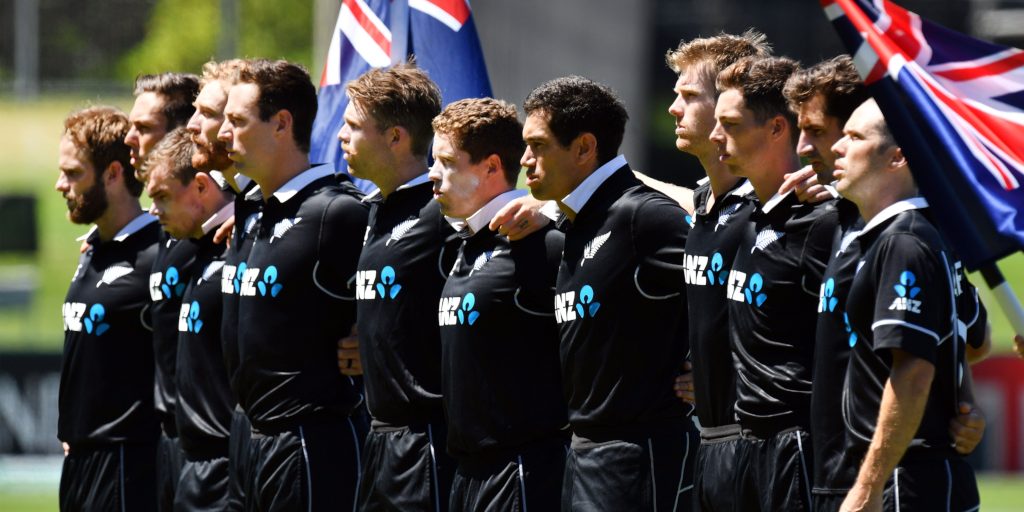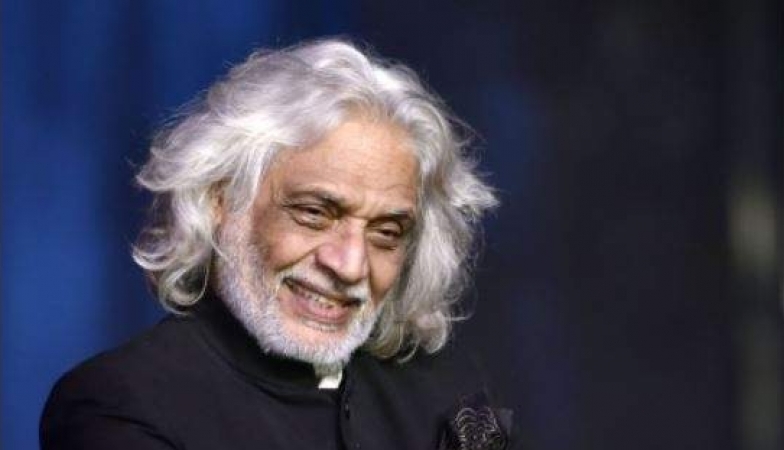VOLUME VII – CHAPTER 12
THE PLEASURES OF PRINCIPALSHIP
DEVELOP THE SPIRIT OF MUTUAL CARING AMONG THE STUDENTS

Education Management means not sitting in your glass chamber throughout the day, but taking time off now and then to go round the school with observant eyes and listening ears. At least one class a day you should observe to understand the teacher, his subject battery storage, the teaching techniques in his armoury, his ability to manage the class, his interaction with the pupils etc. Sit at the back, “observe and take notes for both his strengths and points for improvement. More than these the author used to look out for something new in a class – from the teacher or the students. He had had several enriching experiences. These were the pleasures accrued because of his Principalship. Here are a few examples.
During his visit to the Ramakrishna Mutt at San Francisco in December,1962 the President Maharaj of the Mutt told him how children don’t have any mental barriers. Two students – one a Swiss and another a Japanese were neighbours. Both were developing nurseries in their homes. In, 1942 Franklin Roosevelt, President of USA ordered all Japanese in USA to be put into jail. So the Swiss boy promised his friend’s father that he and his fellows will take care of his nursery and family in his absence till he returned. Four years passed and after the war ended and the Japanese returned. The Swiss boy went to meet his Japanese friend and handed over the nursery and a pass book showing $ 3000/- in his account!
The author told this story in a staff meeting in a KV at Kerala. After sometime a Muslim teacher from that school was transferred to the North Eastern India (on promotion) with an assurance that he can return to Kerala after 3 years of service there. He had a poultry unit. A Hindi teacher (his neighbour) assured him that he will take care of the unit in his absence. After 3 years, when the teacher came back on transfer, this Hindi teacher handed over his poultry unit with a pass books showing a net balance of Rs. 15,000/- with a statement f Income and Expenditure. Human Emotions are always positive as God has ordained. But it is man’s jealousy and habits that change their colour.
ENJOY THE INNOCENT HUMOUR IN PARENTS WORDS

When the author visited a KV at Delhi and was talking to the Principal, the mother of a student wanted to see him. He asked her to wait but the author said, ”Don’t make the parents wait. Call her in.” She came inside and requested the Principal to give admission to a child who had been refused because her father did not have any transfer during the preceding 7 years as per KVS rules. When the Principal explained this rule to her, she said, “Do you know that the national Husband is a good friend of my husband – they studied together.” She meant the “RASHTRAPATHI.”
The Principal without batting an eye lid said, “I am happy to know that. Please ask your husband to get a letter from the National Husband to our Commissioner asking him to give admission to this child. As soon as I get our Commissioner’s order I shall admit her.”
A few days later the Principal rang up the author and said that her husband had met him that morning and apologized for his wife’s behaviour and expression.
A SMALL BUT SIGNIFICANT WAY TO MAKE OUR PUPILS HONOUR THE MARTYRS

When the author visited a KV at the Pakistan border in Punjab in 1984, February, the Principal told him that the child of Abdul Hameed, the hero of the 1971 war with Pakistan was studying there.
Abdul Hameed, an-anti aircraft gunner had fired and downed a large number of Pakistan Sabrejets and was later felled by a firing from the enemy plane. The Principal said that the child’s class teacher inspired her students to buy a present for Abdul Hameed’s wife and sent it through his child.
Next morning in the Assembly the author spoke to the students about the bravery and patriotism of Abdul Hameed and said, “We are proud to have his child as a student of our school. We are also proud of the teacher who motivated the students to send a present to his wife and the note:
“We all still remember Abdul Hameed with pride. This is a token of the Nation’s affection for him.”
Then the author called that student to stand facing the Assembly. He and the Principal along with all the staff joined the students and gave a salute to her in memory of the father.
The author was observing a History class of Std XI where the teacher Sri.R. Seshadri was telling the students about the various gallantry awards given on the Republic Day like Maha Vir Chakra, Ashok Chakra, PVSM AVSM and VSM to Defence personnel in appreciations and recognition of their bravery in the face of great danger. He told them that the servicemen join the services may be for salary and position. But they don’t sacrifice their lives expecting to be honoured with a posthumous award. A student asked, “Sir then what makes them to show such courage.” The teacher said, “I will answer you by narrating an incident involving Queen Elizabeth of UK.” She once gave a soldier an award for gallantry and told him, “That was a very brave thing to do.”
The Soldier saw, “Oh! It was just the training!”
The teacher told his students:
“The Army training is so intense and complete that it makes the soldier think of such acts of bravery as a normal routine naturally expected of them.”
Later in your life when you behave in an excellent manner and if someone praises you for that, you should say, “Oh! That is the effect of our training in our school.”
How wonderfully that teacher answered the students question with an anecdote and also imparted value education?
SIMPLIFY AND CLARIFY
 While working as a Professor in the Sri Ramakrishna Mission Vidyalaya College of Education, the author one day sat in the Science Methodology class of Prof. Ramaswamy just to enjoy his teaching techniques. Prof. Ramaswamy was telling his teacher trainee students the importance of classifying concepts in a simple fashion. He referred to a statement made by Max Pewits a great Scientist when writing about Science and Scientists. He said:-
While working as a Professor in the Sri Ramakrishna Mission Vidyalaya College of Education, the author one day sat in the Science Methodology class of Prof. Ramaswamy just to enjoy his teaching techniques. Prof. Ramaswamy was telling his teacher trainee students the importance of classifying concepts in a simple fashion. He referred to a statement made by Max Pewits a great Scientist when writing about Science and Scientists. He said:-
“I have a parrot perched on my shoulder calling out ever often in his raucous voice:-
“Can’t this be said more simply?” Those words inspire my writing.” The author was observing a Science class of Mrs. Bhagyalakshmi in class IX at KV Coimbatore in 1975, September. It was a Biology class. Suddenly a student cried, “Chameleon, Chameleon” because he saw a chameleon running into the bushy fence. The attention of the whole class was diverted to that. She understood that it was difficult to bring their minds back to the topic she was teaching. So she decided to go with the flow and clear some myths existing about some animals.
She asked them what they knew about Chameleon for which they replied that it changes colour according to the environment. She said that it is a myth and not true. She went on to tell them some more myths that are untrue such as:-
a) An ostrich buries its head in the sand in the hope that its enemy will not notice it.
b) Penguins are found only in the Arctic Continent.
c) A porcupine can shoot its quills.
d) Bulls are aroused by the colour red.
e) The Cobra is attracted by the music made by the snake Charmer’s flute like instrument.
f) Camels carry water in their humps.
g) The horn of a Rhinoceros contains an aphrodisiac.
h) Thrashing about in the water will frighten sharks away.
Suddenly a boy said: Miss, How does quicksand swallow a person or an animal?
She patiently replied:-
Yes. Quicksand has the ability to suck a man to his death. This is a misconception. Quicksand is a pocket of extremely fine sand that has been saturated by water, seeping from an underground source, forcing the individual grains apart. This sand water suspension behaves like a liquid, but as its density exceeds that of the human body, the body will not sink fully. It will sink only about 3/4th and then float. Death by drowning may happen when a person struggles, loses his balance and goes down head first. But the tales about victims being sucked on a trap of quicksand are greatly exaggerated.
She then opened a small note book she had and read out a statement made by Daniel T. Gilbert which had come in the recent Reader’s Digest.
“People are credulous creatures who find it very easy to believe and very difficult to doubt.”
At that point the author intervened and said he remembered an observation of a great scientist, Prof. Milton A Rothman who said that if we can easily decide between facts and beliefs, then Galileo would not have been punished for claiming that the Earth moves around the sun. Though facts were on his side, he didn’t have the power to change the beliefs of others on the basis of those facts. But on the other side of the fence, the priests sat, who had beliefs and powers.
Fact may win over belief in the long run, but very slowly. Even if the facts are strong and the beliefs very absurd, there will always a group of people who will cling to their beliefs and refuse to accept the facts.
The author quoted two statements, one from Francis Hubbard who said:-
“It is not what a man does not know that hurts him or others, it is what he knows that it is not just so.”
And Bertrand Russell the great philosopher remarked:-
What we need is not the will to behave but the wish to find out!
These two statements made the children think for some time as they became pensive after hearing them. One student got up and asked these statements may be written on the blackboard for them to copy.
TRAIN YOUR STUDENTS TO MAKE THEIR COMMUNICATION BRIEF AND PRECISE

An English class in Std XI of KV of Jodhpur was very interesting to the author. The teacher was trying to make the children understand that what we say may be understood in a different way. She said that while travelling through Punjab she stopped at a wayside Dhabha. She was lucky to witness a glorious lesson in communication.
A truck driver stopped and asked the Dhabha owner for a cool drink and was given a Lehar 7 up bottle. The driver said, “No, I don’t want the Madman’s , give me another.”
Madman? Who? I asked the driver. He said that only madman drink what was recommended and pedalled by a madman. He was quite emphatic in rejecting the drunk associated with the caricature of an urchin like a mad fellow. (Lehar Ad.)
The answer, the teacher told the students lay in the degree of sophistication – a function of both environment and exposure. She gave another example of the TATA Tea Commercial. Its ads on TV were different from the ones shown in cinema houses because the rural consumer is for more earthy and more direct. Hence these TATA commercials on the big screen are louder, brighter, more explicit and more hard hitting on the screen. You should vary your plan and pitch according to your audience.
She said: “Look at the Horlicks commercial. All have responded with the same enthusiasm towards the brand for several years. The answer for this success lay to the continuing simplicity of its message. The whole family drank its cup of Horlicks because the family doctor said so that the Horlicks was a good nourisher. No tricks, no deviation in the message.
She made them understand better how communication is made easy through colour. She showed a packet of Surf in blue colour and Nirma in yellow. A simple easy way to comprehend mutual classification – Blue is costlier – Yellow is cheap.
For years toothpaste meant only white and red pack – Colgate.
If it was tea, it had to be Brooke Band’s Red and Yellow colour scheme.
If it was a disinfectant soap, it had to be Red as in Lifebuoy soap.
To make communication as a tool for remembrance – similar sounding names were given.
Nerolac, Superlac Robbialac,
Fevicol, Mahacol, Vamicol
Easy identification and easy understanding.
The tiger cup of Goodlas Nerolac made it known as Billichaap. (cat brand paint)
Jingles that were hummable and facilitated easier audio recall made people remember –Rin, Vicks and Hamara Bajaj.
TEACH THE CONCEPT IN A CADBURY SILK WAY

Sri S. Ramaiah, Vice Principal of KV Meenambakkam was teaching the three types of Heads of States in the world viz. Kings and Queens, Presidents and Prime Ministers and asked the students to give examples of countries having these types of Heads and also tell the names of people who occupied them or occupy now. He then gave them a subtle distinction as:
The Queen of England reigns but does not rule.
The American Presidents rules and reigns.
The Indian Presidents reign but the Prime Minister rules.
People like Hitler, Mussolini and state ruled, reigned and also ruined their nations.
Then he quoted American President John F. Kennedy who said, “No experience could adequately prepare a man for the White House.” And Mussolini, the dictator of Italy said, “He wanted to write his name across his era like a lion with a paw.” But ended upside down on a rope hung by his own countrymen with his mistress.
TELL PARENTS, “HOW THEIR CHILDREN CAN OUTWIT THEM”

When the author visited KV MEG and Centre, Bangalore years back in 1950 and was talking to the Principal, a parent, a Major in the Army came to meet the Principal to whom he said, “For the last 2 years, I have been away to the border. Only now, I have rejoined my family. Please do something with my son in class VIII.”
The Principal asked him, “What was the problem.” The young boy found that at the end of the school year he had not performed up to the expectations of his parents.
In an attempt to soften his father’s lecture he was sure to receive about working in the border and studying more, the youngster presented his report card to his father saying, “Here is my report card, father and one of yours, I found in the attic.”
The Major said, “I could not say anything. He sealed my mouth.”
COURTESY PAYS
In a staff meeting (normally attended by all including the office staff, Head clerk, UDC & LDC) the author at KV Kanpur told the teachers an anecdote narrated by Warren Bennis, the US academic and author.
Bennis told the story of a friend who once hired a cab (Taxi) at New York’s Kennedy Airport. But it wasn’t the usual New York Cab-it was clean and lacked the bullet proof partition dividing driver and passenger.
Also absent was the trademark rudeness of the city’s cabbies.
“Hey – I am Wally” the driver said, handing over his “mission statement” printed on a small card.
“I want to get you to the Airport courteously, safely and on time.”
As he pulled away from the curb he offered the day’s newspapers, soon he mentioned the basket of fruits in the backseat. Then he presented a cellular phone – local calls for the dollar a minute.
The curious customer finally asked the driver where he learned this service approach.
“On a talk show.”
“How long had you been doing this?” asked the traveller.
“Three years” the driver said.
“How much extra money do you make because of this?” the customer asked.
“I figure about $14,000/- a year” the driver said.
A clear sense of “Purpose pays!” The author narrated this anecdote and asked the staff what it meant to them. One teacher got up and said, “From tomorrow, I will behave like this driver with my pupils and parents.”
The message had gone home.
DO GOOD TO AS MANY AS POSSIBLE

It was a Scout Camp. As the Camp Chief, the author introduced the Chief Guest, a Group Captain of the Air force, at the beginning of the inaugural function and said he was happy to introduce him as one who had been a Scout during his school days.
In the course of his address the Chief Guest said, “I am happy, your Education Officer and Camp Chief introduced me as a former scout. A Police or Military officer even after retirement retains the same spirit. So also once you are a Scout you are always a Scout. You are supposed to do a good turn every day. It does not mean that you have to help only one person a day. To explain this point I will tell you an incident in the life of Robert Mc Namara who was a member of the cabinet at the time JF Kennedy was President of USA.
When he was young, a friend told him he was going into Medicine to help people. Mc Namara who had just graduated from College told his friend that he would never want to be a doctor, because it meant helping only one person at a time. “I want to help the largest number of people.” Throughout his life he was pursuing that goal.
REMEMBER – THE LOSER COULD HAVE BEEN THE WINNER

In 1973 the author visited the Ann Mary School at Dehradun. He was attracted by a project initiated by the Principal who christened it “Anti War toys Campaign.” Posters were put up on school walls saying, “Peace begins in the playground. Don’t buy war toys.” This had a remarkable effect on the students who thereafter did not use the word “defeated” in the playground. They simply said, “The first place and second place.” One student told the author, “We say so because the second place team might have lost it only by a whisker.” That does not mean they played indifferently and we played well. It is just that luck was on our side in the form of one point. They gave us a very good fight and it brought out the best in both the teams.” What maturity and nobility of thought?
Discussions were held in classes on violence on the playground, with clear connection to the escalating levels of violence in society. The children were asked to think about the guns and swords they played with at home and whether such toys really helped them to have fun or not. Slowly the children began to think.
According to Dr. Thomas Redicki Chairman of the US based National Evaluation on Television Violence (NETV), studies on the effects of violent cartoons and toys show that these materials cause children to hit, kick, choke, push and hold down other children. They have found an increase in selfishness, anxiety and hunting of animals. Sharing and school performance were found to decrease.
In a long range study of over 22 years, Leonard Eron of the Chicago University found that children who watched a great deal of violent TV were most likely to commit crimes as juveniles and adults.
This experience at Dehradun helped the author at KV Coimbatore to which he was transferred as Principal in June, 1973. Most of the students belonged to the services and as such were tempted to bully the civilian students. The author being a lover of Music gave a twist to the Dehradun idea. He asked the Music teacher to select songs in ragas which will soften any aggressiveness and induce a sense of calmness in the minds of children and also soft instrumental music besides slokas and devotional songs in Tamil, Telugu and Hindi. These were played over the loud speaker in the morning before the assembly, for half-an-hour during lunch time and for 15 minutes at closing time in the evening before all the pupils leave. This exercise had a salutary effect on the student’s ‘temperament’.
VOLUME VII – CHAPTER – 12
ONE WHO KNOWS
(DIMENSIONS OF THE LIFE AND WORK OF A PRINCIPAL)

851) One who has someone who can help him not to take himself seriously.
852) One who asks
Who and how many will come to my funeral, when I die –
Loved, Hated or Rich.
853) One who knows that character is as important as competence.
854) One who knows to lead his people not as he had been led earlier but as he would want to be led in the future.
855) One who follows the CPWRR formula – candour, purpose, will rigour and risk.
856) One who creates an environment similar to Galapagos island (where birds and animals are fearless) – a safe place to work without any fear or becoming someone’s lunch or dinner.”
857) One who has internationalised what Sensei Masaaki – Japanese Management Guru said:
“The Toyota cars show the company’s strength.”
And has made his staff and students shows his school’s strength.
858) One who knows that the only value addition that he has to do is to integrate the efforts of the competent people.
859) One who knows that rumblings of dissatisfaction are not a mere signal, but a clear message.
860) One who knows that the transition of a signal to a weak message or a weak one to a clear message is a very important part of management.
861) One who knows that even institutions can have self-destruction myths such as:
a) Denial, Ritual and Orthodoxy.
b) Arrogance – – Pride before fall
c) Complacency – – Success breeds failure
d) Competency Dependency – – Curse of incumbency
e) Competitive Myopia – – Near sighted view of competitors
f) Territorial impulse – – Turf wars and culture conflicts
g) Volume obsession – – Numbers
862) One who knows to avoid seven deadly habits:
a) Have an exaggerated concept of himself.
b) Not drawing the line between the institution and himself.
c) Behave as if he knows all the answers.
d) With me – Friend
Opposite me – Enemy
This is a dangerous attitude.
e) Developing sensitivity to the manner which he is perceived in the Public Domain.
f) Under estimate major obstacles.
g) Not inviting new approaches to solving problems.
863) One who believes in Carlyle’s principle
“Let each become all that he was capable of doing.”
864) One who –
a) Uses relationships to solve known problems which have known solutions.
b) Finds himself assigned to solve known problems with unknown solutions.
c) Finds himself addressing unknown problems with unknown solutions.
865) One who follows the concentric model of action:
a) In the inner most circle has full control over the needed resources
and clear results to deliver.
b) In the next circle, has clear results to deliver but lacks complete
control over the required resources.
c) In the next circle, has to deliver with very little control over
resources, has to rely solely on advocacy and influence.
866) One who knows fully well that the terms on which he engages with
his tasks will change throughout his career from certainties to
uncertainties.
867) One who has developed the adaptability to work without hierarchy
or authority.
868) One who does not love building relationships for the heck of it;
Who is not a hierarchy driven person
Who has not built relationships that will not be useful later
Who is not just a “Connector.”
869) One who fully imbibes the import of Calvin Coolidge’s statement:
“Nothing in the world can take the place of persistence – Talents will not. Nothing is more common than unsuccessful men with talent – genius will not. Unrewarded genius is almost a proverb. Persistence and determination alone are omnipotent.”
870) One who knows that having a good management degree and experience is like having a driving license for many years. But it does not mean that one can drive in any city in the world, and knows that each city has its own rules and practices and familiarity with streets.
871) One who knows that the power of the core group is from legitimacy and not authority.
872) One who can see what is not visible, hear what is not audible and visualising future possibilities.
873) One who confronts the frictional conflicts, actively resolves them and
ensures that the locomotion of the tasks continue with the minimum reduction in speed.
874) One who knows that he can be at the top 10; he is –
A great thinker
An excellent articulator
A solid performer.
875) One who knows that education –
“Needs to help students find pleasure in what they have to learn” as Plato said.
876) One who knows that as he advances in age, he must go half way to meet the ideas which came to him when he was young.
877) One who knows that being respectful means:
a) Accepting differences
b) Learning to live with them
c) Value traditions and habits of people different from USA
878) One who knows that the execution challenge has three core processes.
a) People process –
Knowing your people
b) Strategy process –
Setting the strategic direction
Making sure that everyone is aligned to that direction.
c) Operations process –
Regular reviews
Not an interrogation
But a Socratic Dialogue when Touvall questions are asked
and debated.
879) One who can hold two opposing thoughts at the same time and yet retaining the ability to function as Scott Fitzgerald put it.
880) One who deploys the right people in the right ways and hence has no need for a lot of directives.
EMINENT THINKERS (VOL VII – CHAPTER 12)
(Whose ideas have been adapted for Education Management)

606) Dr. R.L. Bhatia
607) Shikhar Dhawan
608) Thiru Vi Ka
609) Desek Edmond
610) Muzaffar Ali
611) Harish Bhat
612) Shyam Srinivasan
613) Sangat Gupta
614) Thukaram
615) Yudhishthir Khatau
616) V.Vaidyanathan
617) Subhash Kamath
618) Ravneet Gill
619) Ramesh Iyer
620) Rahul Rana
621) Nadia Chauhan
622) Hari Mohan Bangur
623) G.V. Krishna Reddy
624) Dilip Kapua
625) Dattaraj V. Salgocar
~~~~~
THREE disciplines are essential, to become aware of Divinity in all and in the Avatar. No activity should be taken up with individual aggrandizement in view; intellectual emotion must be directed to the revelation of the Resident in the Heart, Atma. Every act should be done sincerely, with love, with no yearning for acquiring personal profit, fame or benefit. Above all, listen to the voice of God within. As soon as one contemplates a wrong act, that voice warns, protests and advises giving up. – Bhagawan Sri Sathya Sai Baba




